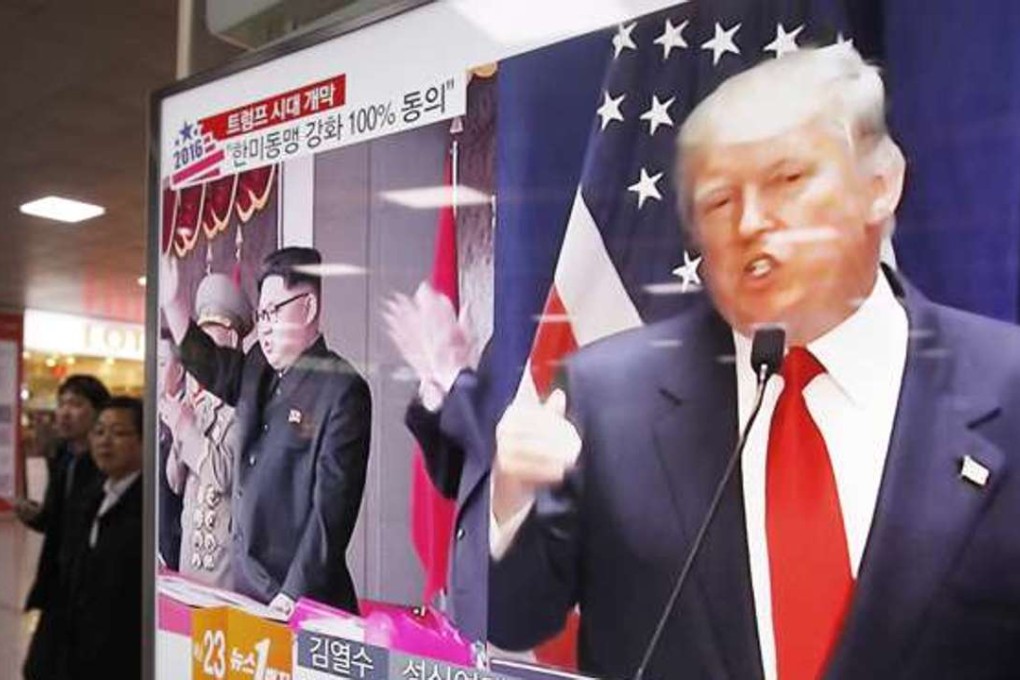In the end, only the US can solve the North Korean issue
Direct talks may be the answer rather than roundabout subterfuge that alienates other parties who have a stake in the region

A common approach by governments towards North Korea is the only way to deal with the threats posed by its nuclear and missile programmes. But Japan and South Korea have opted to break from that position, agreeing to share intelligence information between themselves with the US as the intermediary. China is understandably concerned, being a partner in efforts to find a peaceful solution, yet left out of an arrangement that could also be as much about joining forces against its rise. The neighbours should be working together to end Pyongyang’s intimidation, not taking actions that worsen tensions. China’s relations with South Korea had already been soured by a decision to deploy an American anti-missile defence system with powerful radar capabilities that could reach far into Chinese as well as North Korean territory. Ties with Japan have long been rocky, but been taken to lows by the Diaoyu Islands territorial dispute and Prime Minister Shinzo Abe’s push to change the pacifist constitution to create a fully fledged military. Sino-US links have similarly been worsened over President Barack Obama’s rebalance to Asia and his stand on the South China Sea. An agreement to share sensitive information that could be as much about China as North Korea is therefore bound to be viewed by Beijing as another threat to its security.
South Korea’s government ignored protests by citizens in approving the deal, which had previously been rejected in 2012. The South, like China, suffered at the hands of the Japanese military before and during the second world war and a dispute over contested islands remains unsettled. Demands for an apology and compensation for atrocities continue.
Decades of schemes have failed to alter the North’s path. Six-nation talks led by China, ever-tougher UN sanctions and economic incentives have not prevented nuclear and missile tests. Obama’s refusal to accede to North Korean leader Kim Jong-un’s demands for bilateral talks have been met by increased belligerence; five of the six nuclear tests since 2006 were carried out during his presidency. A different approach is needed.
US president-elect Donald Trump holds the key. His national security adviser, Michael Flynn, said North Korea would be given a high priority and during campaigning, the incoming leader raised the possibility of talks with Kim. The North wants negotiations with the US for a peace treaty to replace the armistice that stopped the Korean war in 1953. Accepting that reality and breaking with past American intransigence is the best hope for lessening uncertainty in the region.